Do It Yourself
How to Prepare for the Next Food Shortage | 12 Foods to Stock Up on Now

What you should stock up on now in order to get ahead? It’s better to be more than prepared when a food shortage happens!
12 Foods to Stock Up to Prepare for a Food Shortage
The COVID-19 pandemic and the quarantine recommendations that went along with it led to panic-buying by most of America. As everyone prepared to stay home for at least two weeks, they stocked up on everything they would need to sustain themselves.
Store shelves emptied. Then, as the virus spread, plants shut down and supply chains were interrupted. This meant stores were unable to restock for weeks and even months.
Many items are still in short supply or being rationed by stores to prevent the same empty shelves from recurring. So what were the first items to leave shelves? What should you be stocking up on if conditions deteriorate again as we enter flu season?
For the most part, Americans have become overly reliant on restaurants and prepared food options. The ease and speed of putting together a meal are possibly the most important considerations for the average person when they are shopping.
For Preppers, making sure to stock items with enough calories to sustain life is a priority as well, which means lots of pasta and potatoes to fill you up.
1. Ramen Noodles
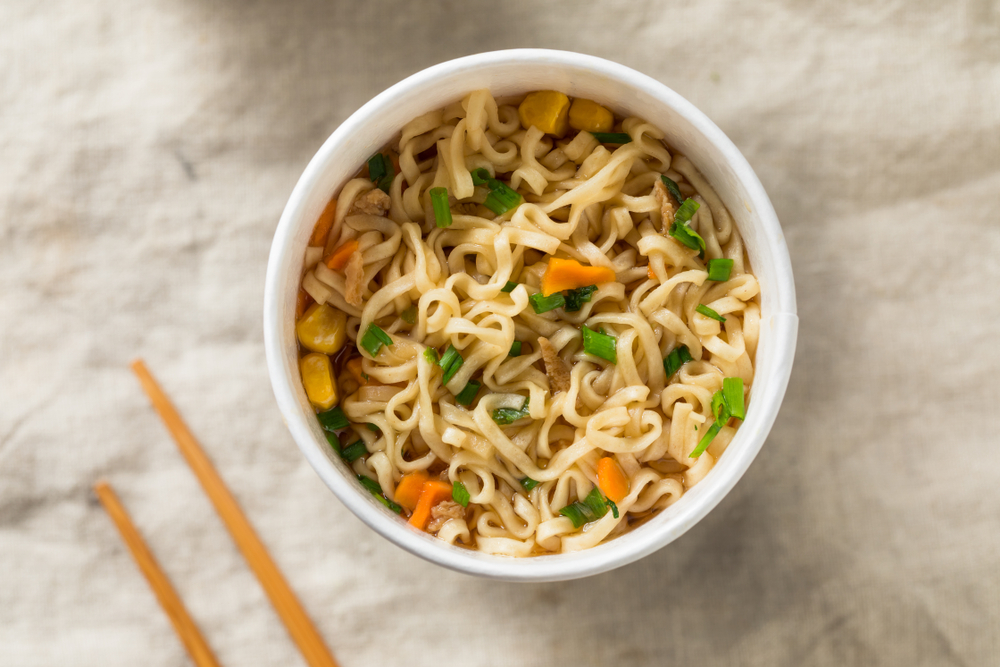
Ramen is not exactly the healthiest choice, but there’s no denying how easy, quick, and handy they are. The cup o’noodles even eliminate the need for a bowl.
For 30¢, you can have a meal by simply adding boiling water. If ramen has been restocked in your store, be sure to buy it while you can.
2. Macaroni & Cheese
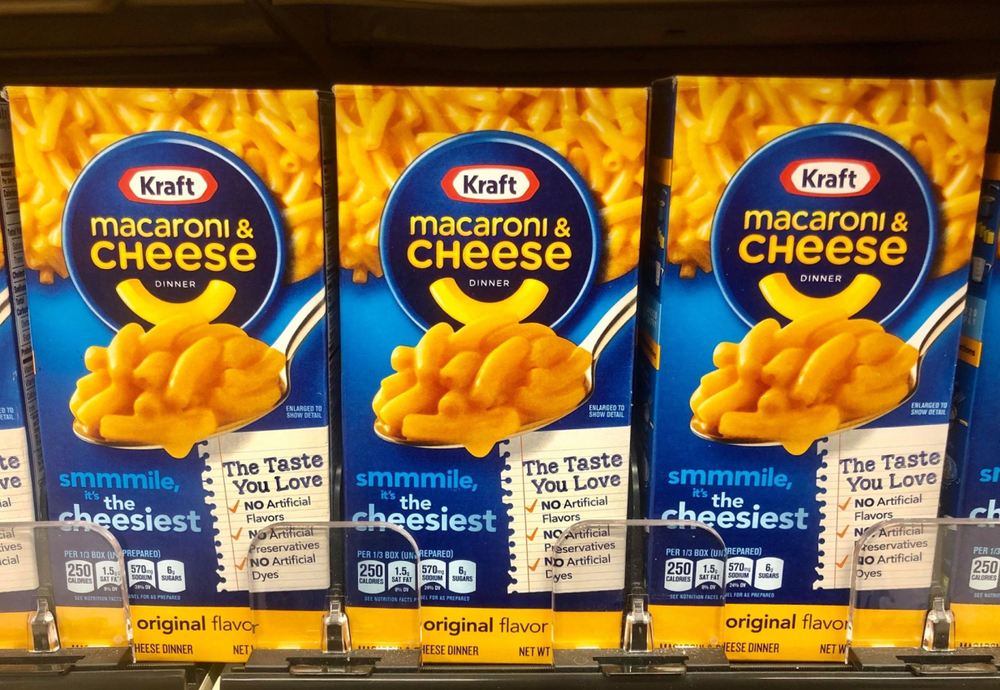
Again, not the healthiest choice, but macaroni and cheese is easy and can be made very quickly. You can even skip the butter and just add dry milk and water if your supplies are limited. Most children will be placated by macaroni and cheese, making it an ideal choice for parents.
3. Dry Milk/Boxed Milk
Milk has been in short supply throughout the pandemic, as it is a household staple for most of America while also having a short shelf life. Shelf-stable milk options are an item to stock up on while you can unless you have consistent access to a reliable dairy farm.
4. Canned Fruit
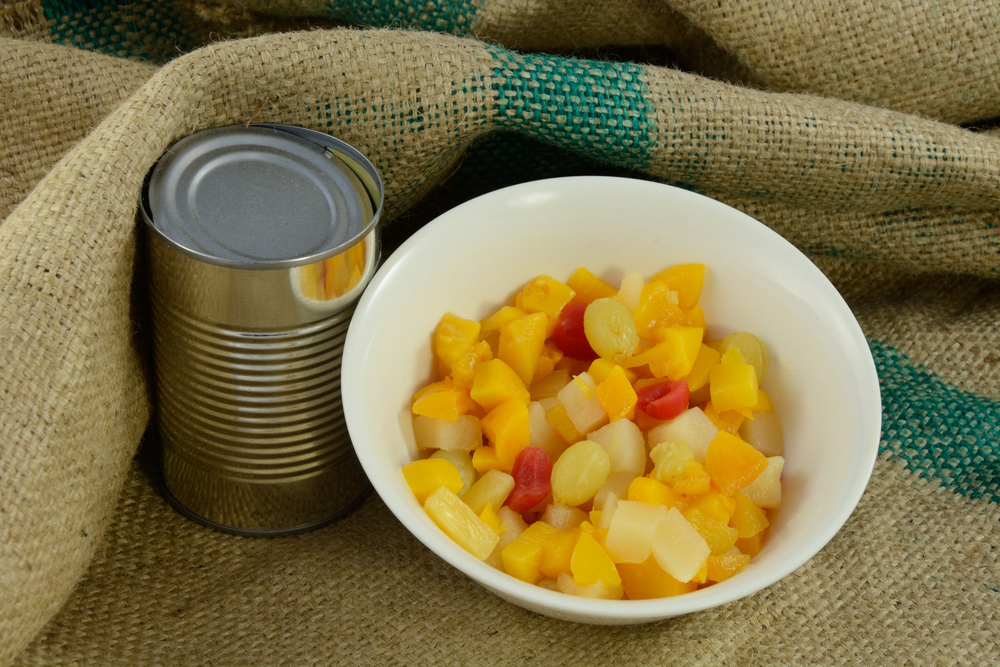
There is no cooking or preparation needed for canned fruit, and no need to dirty a dish. It is delicious and nutritious and a sweet pick-me-up.
5. Mashed Potatoes
Boxed potato flakes are a great, efficient way to add extra calories as you’re cooking meals. They can be added to soups, stews gravies, and sauces as a thickener, especially if you don’t have access to milk or cream.
6. Canned Chiles
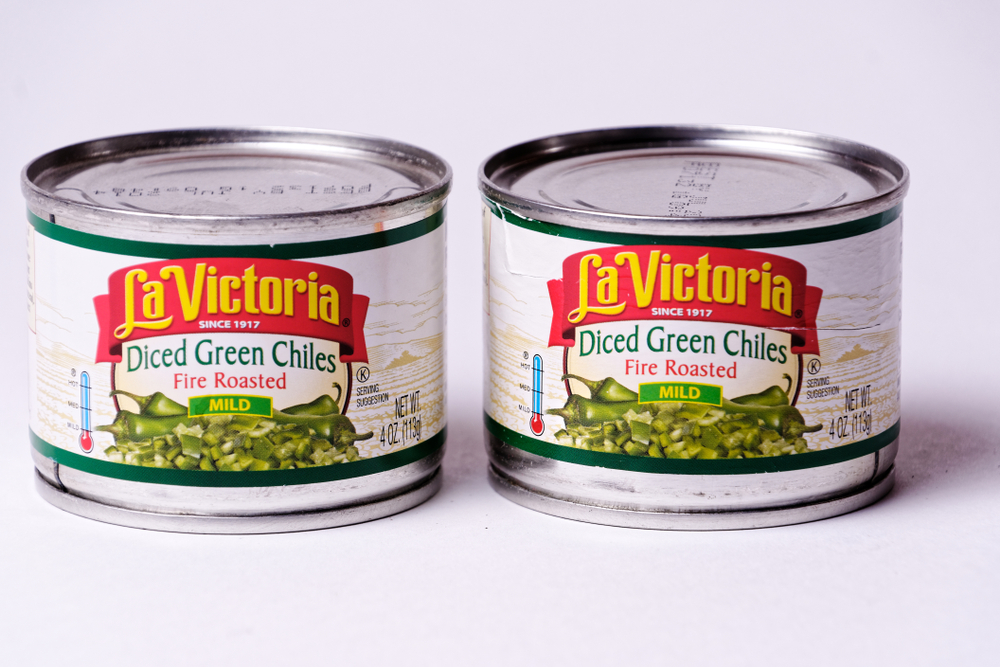
Chiles are another item that does not need to be heated for consumption and can easily add flavor to your meals. They can be eaten directly out of the can.
7. Noodles
View this post on Instagram
Any and all types of pasta are a great item to stockpile. They provide the necessary calories and require only boiling water to prepare. They can be used as a main course, side dish, and be added to soups and stews.
8. Minute Rices
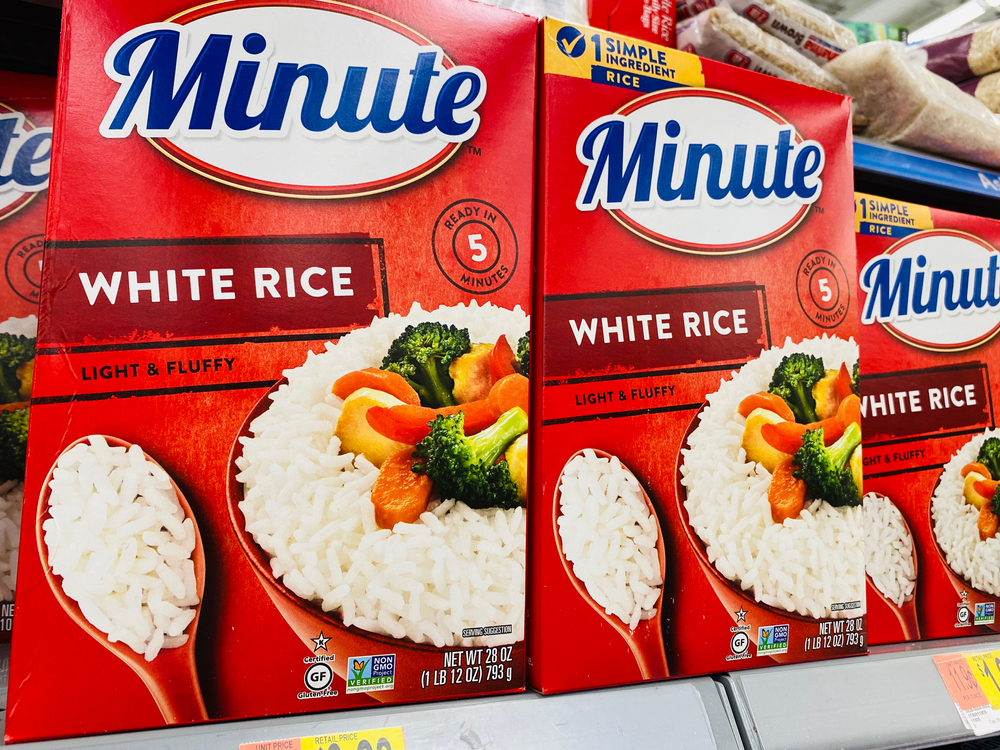
Regular dried rice takes a significant amount of time to prepare, but minute rice is much faster and easier to cook. You will need only boiling water to have a filling dish.
9. Canned Soups
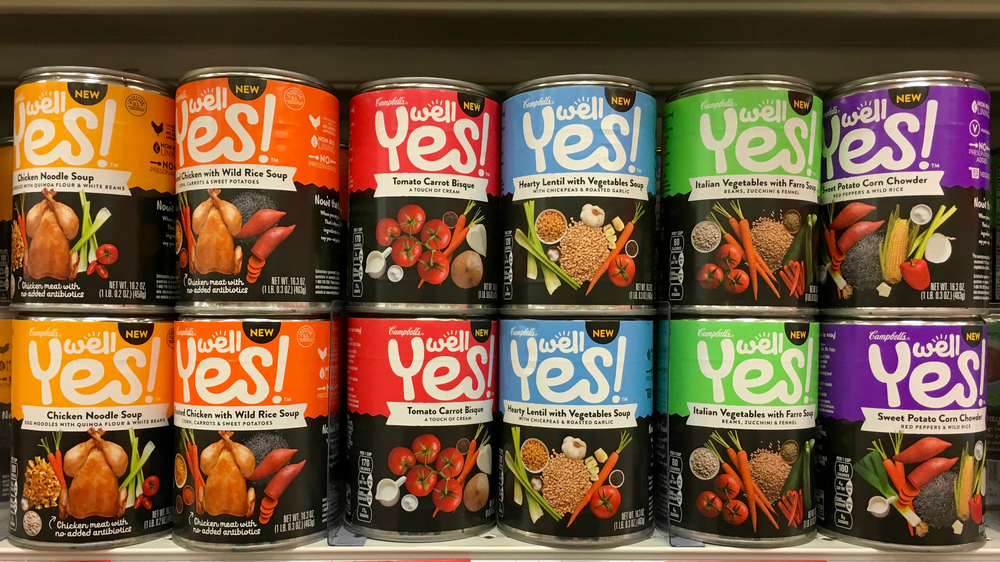
Traditional canned soups do not contain enough calories to sustain life, but a chunky soup over rice or with boxed potato flakes added to it can provide a quick, easy, and flavorful meal.
10. Canned Tomatoes
Although they are lacking in calories, canned tomatoes are a versatile and popular item to stock up on. You can use them to make Italian food, chilis, soups, and stews.
11. Drink Flavorings
- One 1.62 fl. oz. bottle of MiO Fruit Punch Liquid Water Enhancer
- MiO Fruit Punch Liquid Water Enhancer Concentrate delivers refreshing flavor in every squeeze
- Convenient bottle neatly fits in your purse, bag or glove box for easy on the go mixing
Not a necessity by any means, but many Americans do not prefer plain drinking water. Even if you do not personally consume drink flavorings, you may want to stock them as barter items.
12. Paper Towels
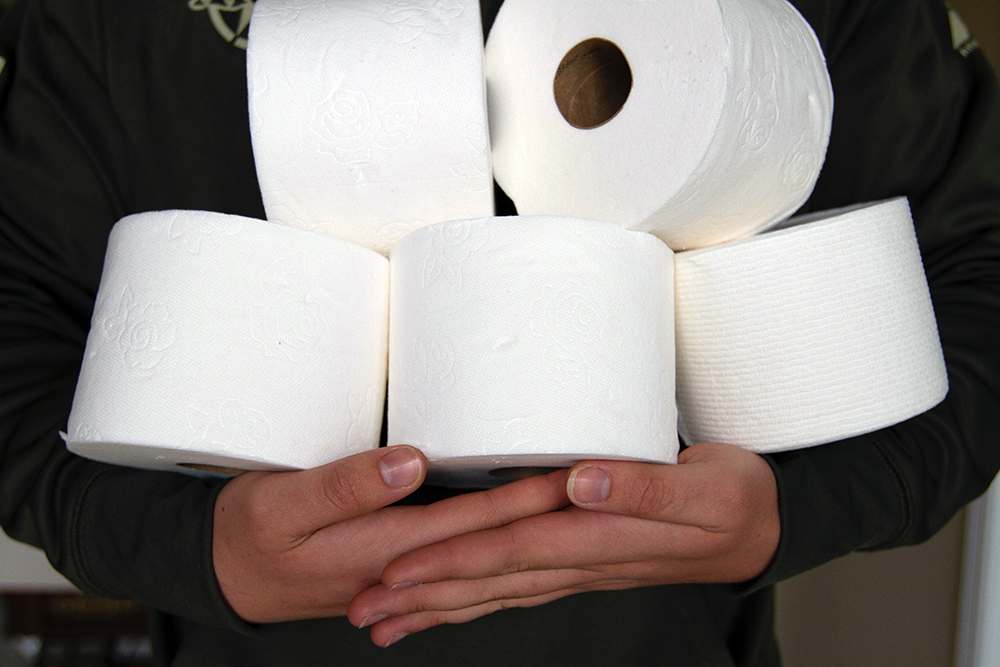
Again, paper towels are hardly a necessity. American culture is one that wastes and prefers single-use items, and paper towels have become a symbol of that culture. They will continue to be in short supply despite the fact that rags and towels work just as well and can be washed and reused.
These are the actual items that were hard to come by in 2020, so you can expect them to be sold out again if we face another crisis. With stores mostly restocked, now is a good time to stock up on these pantry staples and be prepared for a food shortage!
Do you have anything to add to our list? Do share your tips and ideas for food shortage preparation in the comments section below!
Up Next:
- 100 Dollar Store Survival Preps To Stockpile Now
- Are You a Survivalist or a Prepper?
- 10 Foods That Never Expire
Last update on 2024-04-24 / Affiliate links / Images from Amazon Product Advertising API
-

 Do It Yourself7 months ago
Do It Yourself7 months agoParacord Projects | 36 Cool Paracord Ideas For Your Paracord Survival Projects
-

 Do It Yourself9 months ago
Do It Yourself9 months agoHow To Make Paracord Survival Bracelets | DIY Survival Prepping
-

 Do It Yourself9 months ago
Do It Yourself9 months ago21 Home Remedies For Toothache Pain Relief
-

 Do It Yourself10 months ago
Do It Yourself10 months agoSurvival DIY: How To Melt Aluminum Cans For Casting
-

 Exports8 months ago
Exports8 months agoAre Switchblades Legal? Knife Laws By State

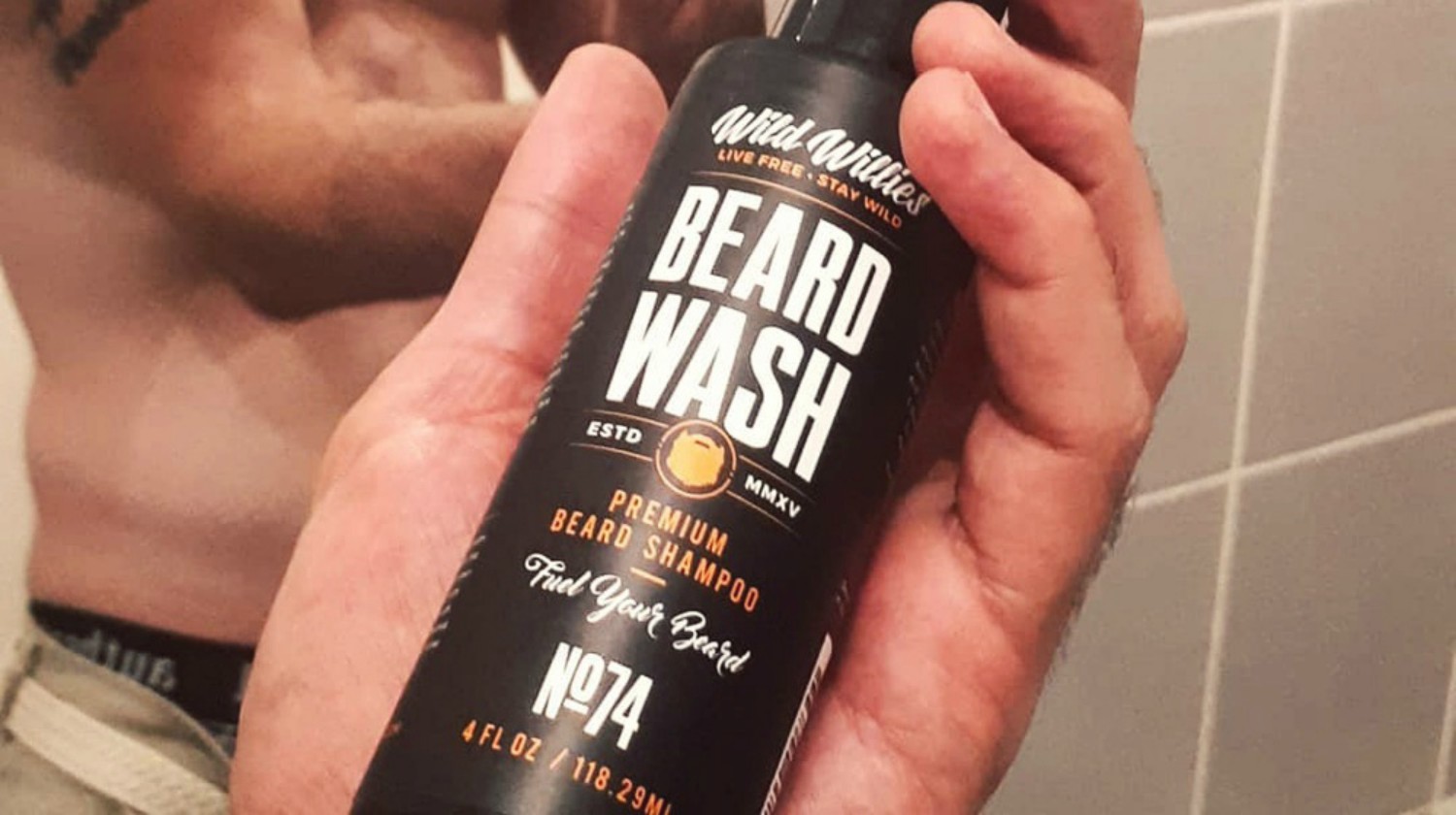






Derrick
October 23, 2020 at 9:09 AM
Canned beans, “Dinty-Moore”, and chili.
Long shelf life and ready to eat out of the can. Excellent grab-and-go calories AND nutrients. Don’t forget they are perfect Barter items as well.
LouisG
October 27, 2020 at 3:48 PM
This stuff ^^^^^^ for sure!
Paul Smith
October 23, 2020 at 9:32 AM
Good grief, while canned chili peppers might make dishes taste better, so do Tabasco sauce, Housin sauce, Sriracha and your herbs and spices. Save your shelf space for meat…
Canned Chicken
” Tuna
” Ham
” Chili
” Beef Stew
” Chili Mac
” Tortilias
” Vienna Sausage
” Salmon
” SPAM
” whatever else contains significant protein
AND for canned fruits and vegetables (including some chili peppers 🙂 ).
You should have a supply of quality multi-vitamin/multi-mineral supplements for six months.
I agree that paper towels are a waste of money and resources but toilet paper is not. Make sure you have plenty and learn to use it without running water (no toilet).
Speaking of water, it’s hard to cook without potable water and it’s possible for your water plant to go down in a pandemic. A quality water filter like the Berkey Lite can be a literal life saver.
Back to eating, can you cook without your stove or see in the dark if the power fails for extended periods (weeks/months)? I know, different subjects but you have to prepare that food.
Instant rice has a two year shelf life, regular rice will last ten years or longer. Most boxed meals have a short shelf life.
Buy what you eat and eat what you buy. Rotate, first in, first on the table.
Gene Wilson
October 23, 2020 at 10:51 AM
Believe it or not, it seems there was a rash of new bakers in my area. It was hard to find baking essentials like yeast, flour, sugar, corn starch, etc.
Laura Roberson
October 23, 2020 at 2:13 PM
Salt, spices, sugars, a few cake mixes or brownie mixes. Jello packs. Face it kids like sweets almost as much as adults. Canning supplies, if you don’t use, great barter item. White vinegar. Bar soap ( liquid refills are still non existent at local WM) dry shampoos. Feminine hygiene products for the ladies in the family!
Don
October 27, 2020 at 12:06 PM
Canned tomato products are OK for short to mid-term storage, but the acid in them prevents good long-term storage. The same can be said for canned fruits that contain pineapple. I have Spam and tuna that is over 5 years out of date that I am consuming now that is quite edible. Don’t forget a potable water source or the foods suggested above are practically useless. You can make your own Berkey type water filter utilizing food grade 5 gal. buckets and 2 Berkey filters (Approx. $120)
Dave from San Antonio
October 27, 2020 at 12:29 PM
Good choices. While the vast majority of these types of foods and others, too, have higher levels of fat and sodium that might be considered unhealthy they will supply much needed calories, primarily from fat. As much as we don’t want it, fat is absolutely necessary for survival situations where food may not be very plentiful and meals might be small. Fat provides the energy people will be needing. Sodium, while unhealthy in larger quantities, is an electrolyte that is essential, especially if you are in a hot environment or involved in heavy physical labor. FEMA, the Red Cross and other emergency agencies have advocated, for years, to have a minimum 3 days of food and water stored for an emergency. Over the past few years that was changed to two weeks. Now, though, they say a ‘minimum’ of six weeks. Note…this did not get widely disseminated through the MSM. Even DHS has recommended the same. Take food and water storage, as-well-as other emergency preparedness seriously.
Meledie Knopf
October 27, 2020 at 1:06 PM
The previous suggestions are excellent inputs. I would suggest quinoa, pumpkin seeds, chia seeds, and other like items, all of which, when added to any food item, add incredible amounts of nutrients and take very little cooking. The Crumb crunches won’t notice the addition, so don’t advertise it to them.. Kirkland bacon bits add protein and flavor, and is already cooked. I keep mine in the freezer, is easy to take out and use immediately, no thawing necessary. Another excellent source of protein and nutrients is peanut butter. Pancake mix and real maple syrup (never goes bad). Corn starch, baking soda, baking powder, sugar, flour. Lots of salt not only for seasoning, but preserving foods, and preferred spices and seasonings. Powdered eggs, powdered butter, powdered peanut butter. Above all, learn and know how to use long-term storage foods NOW!! No power=no internet for YouTube learning.
Meledie Knopf
October 27, 2020 at 1:32 PM
I’d like to add a few more items for your consideration. To do any cooking/baking,, grease, like Crisco, will be an essential. It will last a very long time. Also effective and loaded with nutritional value is coconut oil. Milk doesn’t need to be dry. Buying boxed milk (like Gossner/quart boxes//Dollar Tree) will last one year unopened. Suggest the whole milk for the needed fats. Also an excellent source of nutrients is almond, soy, oat, coconut milk, etc. Even canned milk would be invaluable.
Kaycee Petersen
October 28, 2020 at 3:08 AM
I add butter, bread for toast & sandwiches, non-stick cooking spray (I prefer the olive oil flavor) peanut butter and jelly. All these items, except for the butter & bread have about a year shelf life. It’s been mentioned already but be sure to have about a months supply. I by it twice a year and all of it fits nicely in the spare bedroom closets upper shelf. My husband has always called it White Gold.
Karen
October 28, 2020 at 9:37 PM
I like canned chicken. It can be used many ways and doesn’t have to be refrigerated.
Jeremy
October 30, 2020 at 7:11 AM
Is this for real? I would have never imagined I’d have to stock up on food because of a possible shortage and now here we are.
MIKE
October 31, 2020 at 10:02 AM
Factory bottled and sealed Spring Water will last for several years! I have bottles, which I have opened recently to use, which has been stored in my basement for over 5 years and the water was fine.
I have talked to people who stated that if it is stored well and not opened it should be good for many years. Once opened it should be consumed in two weeks or less.
Mary Gendron
November 1, 2020 at 5:19 AM
Depending on your culture and lifestyle, your “gotta haves” will be different. So stock up and rotate those items you think you can’t live without.
American Prepper
November 7, 2020 at 3:39 AM
Paper towels are not food.